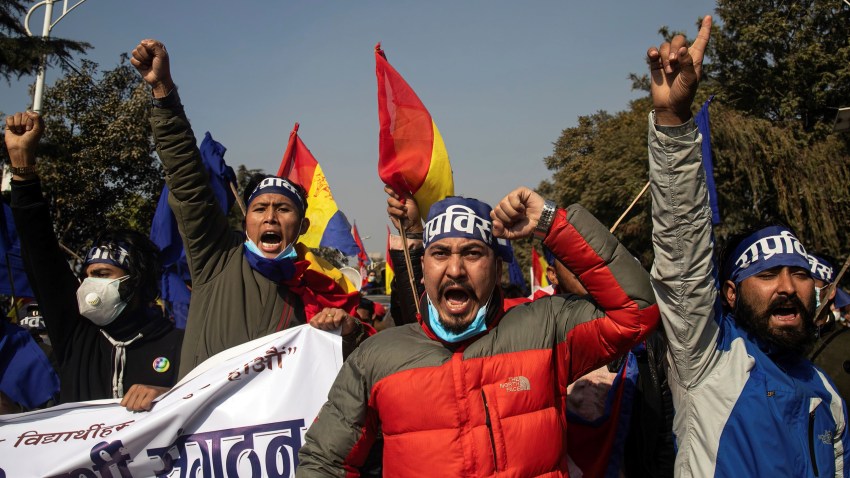In recent months, Nepal has experienced a series of episodes that hint at organized efforts to increase the salience of religion in the country’s officially secular politics. In the months of August, September and October, sectarian communal tensions involving Hindu activists in three different cities—Dharan, Malangawa and Nepalgunj—led the government to impose a curfew. Overlapping this period, Indian analysts and media, including mainstream outlets, featured a spate of reporting on the Nepal Janata Party, or NJP, a Hindu-nationalist party inspired by India’s ruling Bharatiya Janata Party, or BJP. That few Nepalis, including seasoned political analysts, had ever heard about before. During the same period, Binod Chaudhary, a sitting member of parliament and Nepal’s richest person, invited Dhirendra Bahadur Shastri, a self-styled Hindu-extremist godman from India, to recite Hindu scripture in Nepal’s Shashwat Dham temple. During his visit, Shastri reportedly challenged Nepal’s secular status.
This emergence of Hindu nationalism coupled with attacks on Nepal’s secularist credentials as enshrined in the country’s Constitution should not be seen as discrete incidents. Rather, they must be analyzed in the context of Nepal’s domestic politics, while taking into account the export of Hindu-nationalist politics from India. This in turn involves understanding the historical roots of Nepal’s Hindu polity, how the country became a secular republic, the growing popular disenchantment with mainstream political parties and the BJP’s Hindu ambitions for Nepal. The stakes are urgent, as the health of Nepal’s young democracy would suffer should Hindu nationalism make significant inroads there.
Nepal’s Pragmatic Secularists
Any analysis of the growing significance of Hindu-nationalist, or Hindutva, politics in Nepal should first take into account the country’s centuries-old legacy of being a Hindu monarchy ruled by a Kshatriya, or “warrior” caste, king. While there were sporadic calls for secularism under the monarchy, particularly by Maoist insurgents and minority indigenous groups, they never gained much traction.

